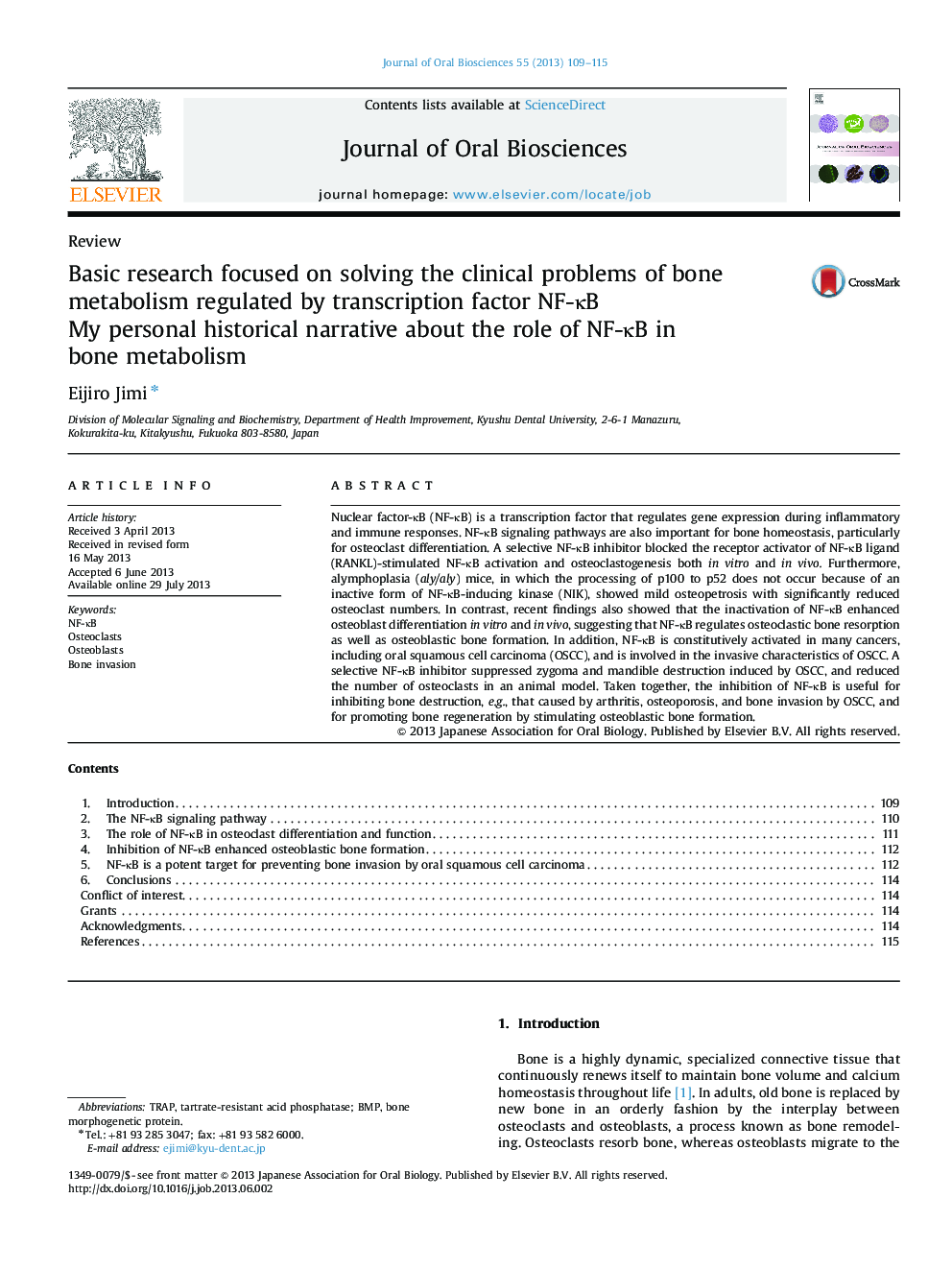| Article ID | Journal | Published Year | Pages | File Type |
|---|---|---|---|---|
| 2776884 | Journal of Oral Biosciences | 2013 | 7 Pages |
Abstract
Nuclear factor-κB (NF-κB) is a transcription factor that regulates gene expression during inflammatory and immune responses. NF-κB signaling pathways are also important for bone homeostasis, particularly for osteoclast differentiation. A selective NF-κB inhibitor blocked the receptor activator of NF-κB ligand (RANKL)-stimulated NF-κB activation and osteoclastogenesis both in vitro and in vivo. Furthermore, alymphoplasia (aly/aly) mice, in which the processing of p100 to p52 does not occur because of an inactive form of NF-κB-inducing kinase (NIK), showed mild osteopetrosis with significantly reduced osteoclast numbers. In contrast, recent findings also showed that the inactivation of NF-κB enhanced osteoblast differentiation in vitro and in vivo, suggesting that NF-κB regulates osteoclastic bone resorption as well as osteoblastic bone formation. In addition, NF-κB is constitutively activated in many cancers, including oral squamous cell carcinoma (OSCC), and is involved in the invasive characteristics of OSCC. A selective NF-κB inhibitor suppressed zygoma and mandible destruction induced by OSCC, and reduced the number of osteoclasts in an animal model. Taken together, the inhibition of NF-κB is useful for inhibiting bone destruction, e.g., that caused by arthritis, osteoporosis, and bone invasion by OSCC, and for promoting bone regeneration by stimulating osteoblastic bone formation.
Keywords
Related Topics
Life Sciences
Biochemistry, Genetics and Molecular Biology
Clinical Biochemistry
Authors
Eijiro Jimi,
